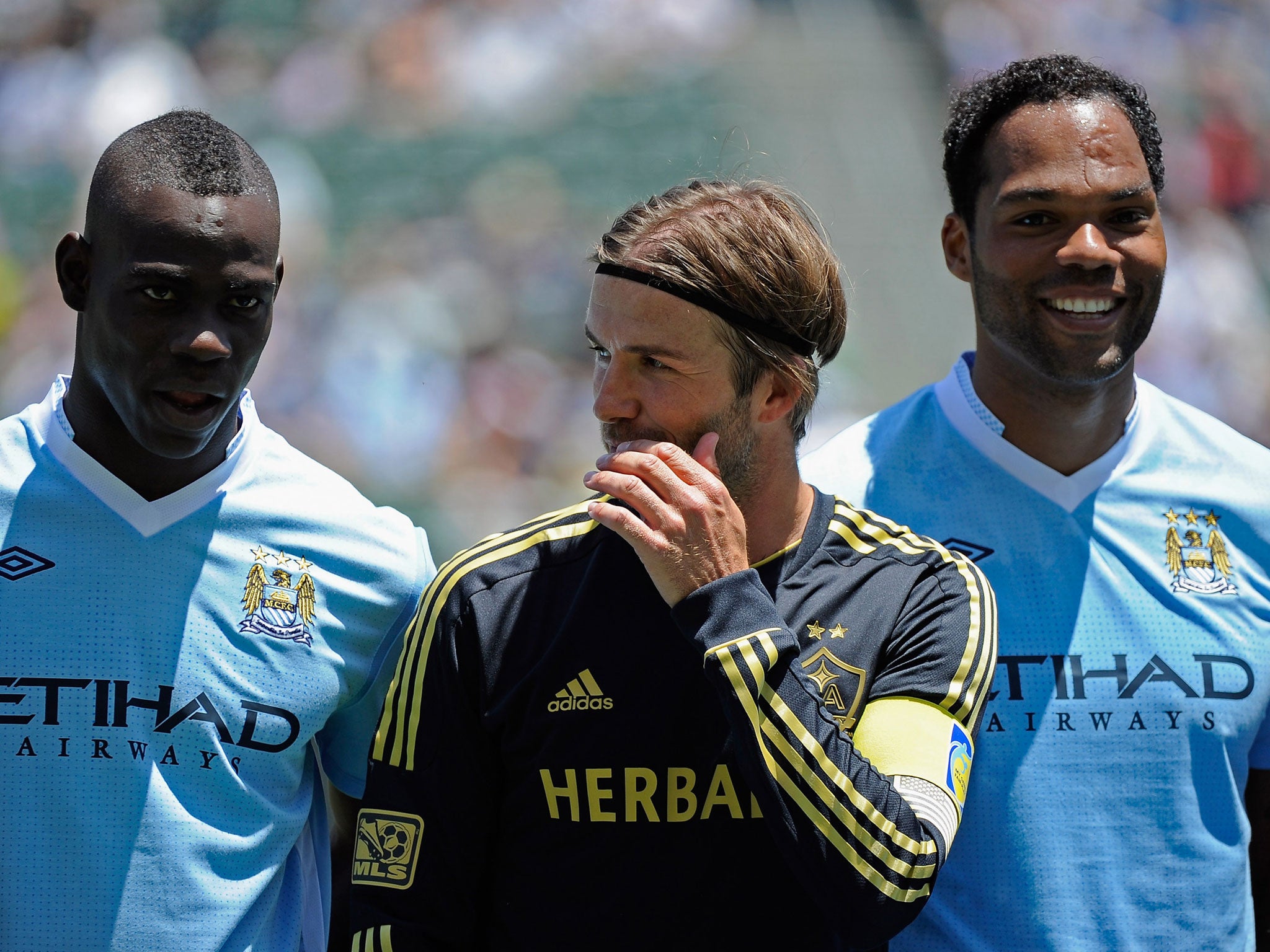New York Blues: Manchester City try to crack American market
Club close to huge commercial breakthrough in States with $100m deal to buy Major League Soccer franchise

Manchester City are poised for a potentially huge commercial breakthrough in the United States, as the club's Abu Dhabi owners prepare a $100m (£65m) deal to buy a New York Major League Soccer (MLS) franchise.
The Independent revealed two months ago that City have been investigating partnering with clubs in the States, Mexico, China and elsewhere in Asia, as a way of developing their brand, with the possibility that North America may be the location for the most ambitious project. City's game against Chelsea in New York's Yankee Stadium on 25 May now appears to be the moment when Sheikh Mansour bin Zayed al-Nahyan could announce the conclusion of final negotiations for an MLS franchise, located in Queens.
Last night, City would not discuss the deal, which is understood not to be completed at this stage, with secret negotiations still ongoing and no guarantees of success. But the owners will not enter MLS by half-measures – and will seek to make a hugely ambitious impact, if final talks progress as expected. Sources in the United States suggested yesterday that Sheikh Mansour was ready to field the MLS's 20th team, which could be called New York City FC and would enter the league from 2016.
The franchise would give the owners a huge commercial opportunity to begin aggressively pushing the City brand in New York – where the notion of a presence for the club was first floated by former chief executive Garry Cook three years ago and where City have a strong community presence.
With Manchester United continuing to wield huge financial power and now listed on the New York Stock Exchange, City's chief executive, Ferran Soriano, declared in the club's annual report in December that "new, creative ideas and business models" would be required to undertake a "historic transformation" of the club. While chief executive at Barcelona, Soriano worked on establishing an MLS team in Miami, though he concluded that the salary cap would prevent the Spanish side from excelling the way they had in La Liga.
A New York franchise would also create the chance to develop young players for City and to establish the deposed champions as New York's Premier League team. City's presence there has grown rapidly since a successful summer tour in 2010, when Cook met MLS commissioner Don Garber, who urged him to consider an MLS franchise. City have run football schools in New York ever since, and have put 200,000 children through their City Soccer programme run by Paul Jeffries, with the £500,000 AstroTurf pitch on the roof of a school in Spanish Harlem also part of this effort.
Garber said last week that he hoped to make an announcement about the expansion team in New York in four to six weeks. In 2010, Garber discussed City's ambitions with the Associated Press, saying: "Part of the relaunch of that team [City] is for them to think strategically about their business and where international expansion fits into that, and where the US might fit into that. We've had very preliminary discussions about that. They've got a lot of figuring out to do on their own end in terms of what their international plans are."
The idea of having an MLS team owned by one of the most important football clubs in Europe, who are themselves seeking to dominate the continental game, is seen as a huge boost to attempts to broaden the footprint of the sport in the United States.
Despite the salary cap, an association with wealthy owners who are willing to spend hundreds of millions of dollars on their teams would represent a major vote of confidence in football's potential in America. There is currently no MLS franchise in New York. Thierry Henry's New York Red Bulls play in nearby New Jersey.
Since Sheikh Mansour arrived relatively late to the Premier League, his executives at City have found it tough to convert his near £1bn investment into the kind of global brand that persuaded Saudi Arabian telecoms firms and Japanese paint manufacturers to pay heavily for an association with Manchester United. Ten years after Roman Abramovich's arrival at Stamford Bridge, and despite winning three domestic titles and a European Cup, Chelsea also still trail United for global reach.
That explains the significance of the New York deal and City's parallel pursuit of partner clubs in China, Mexico, and elsewhere, part of an attempt to drive up the revenues in lightning-fast time. The British domestic potential is limited – more than 70 per cent of the television audience is overseas – so Soriano will do whatever it takes for City to command global recognition. As the strictures created by Uefa's new Financial Fair Play regulations intensify, they need to find new ways of earning income.
Join our commenting forum
Join thought-provoking conversations, follow other Independent readers and see their replies
Comments
Bookmark popover
Removed from bookmarks